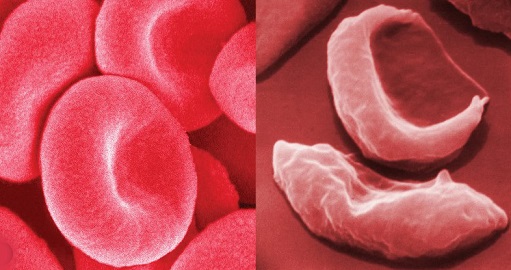Nikhil Prasad Fact checked by:Thailand Medical News Team Feb 24, 2024 2 years, 1 day, 3 hours, 58 minutes ago
COVID-19 News: The COVID-19 pandemic has unveiled the intricate web of physiological repercussions caused by the SARS-CoV-2 virus, extending far beyond the respiratory system. This comprehensive study covered in this
COVID-19 News report, conducted by the University of Colorado Anschutz, the Josep Carreras Institute for Leukaemia Research (IJC) in Spain, and the Autonomous University of Barcelona delves into the potential association between COVID-19 and anemia. The study places a particular emphasis on understanding the deformability of red blood cells (RBCs), stability of hemoglobin, enzymatic activities, and the proteomic profiles of membranes. With a cohort of 74 individuals, including COVID-19-positive individuals, a control group, and patients with other viral infections, this research aims to elucidate the specific effects attributable to SARS-CoV-2.
 COVID-19 Causes Deformation Of Red Blood Cells, Leading To Anemia
COVID-19 Causes Deformation Of Red Blood Cells, Leading To Anemia
A previous study had found in COVID-19-positive patients, the coexistence of anemia in 61% of cases compared to 45% of cases in a group of patients with clinical and laboratory findings suggestive of COVID-19, but with negative nasopharyngeal swab test.
https://link.springer.com/article/10.1007/s10238-020-00679-4
Thailand
Medical News in its previous coverages had showed that SARS-CoV-2 is able to affect the red blood cells In a number of ways and also causes anemia and other related conditions.
https://www.thailandmedical.news/news/covid-19-news-sars-cov-2-impairs-oxygen-delivery-by-altering-red-blood-cell-hematological,-hemorheological-and-oxygen-transport-properties
https://www.thailandmedical.news/news/breaking-covid-19-news-sars-cov-2-affects-red-blood-cell-morphology
https://www.thailandmedical.news/news/breaking-news-german-and-swiss-researchers-discover-increased-red-blood-cell-deformation-in-children-and-adolescents-after-sars-cov-2-infection
https://www.thailandmedical.news/news/breaking-news-belgium-study-finds-that-covid-19-can-cause-erythropoiesis-alterations,-inflammatory-anemia-and-prevalence-of-positive-coombs-tests
medical.news/news/study-finds-that-sars-cov-2-infections-can-either-cause-onset-of-anemia-or-exacerbate-the-effects-of-anemia-for-those-already-with-the-condition">https://www.thailandmedical.news/news/study-finds-that-sars-cov-2-infections-can-either-cause-onset-of-anemia-or-exacerbate-the-effects-of-anemia-for-those-already-with-the-condition
https://www.thailandmedical.news/news/breaking-news-study-shows-that-asymptomatic-covid-19-infections-end-up-with-sub-clinical-vascular-damage-and-red-blood-cell-turnover
https://www.thailandmedical.news/news/covid-19-latest-sars-cov-2-may-target-red-marrow-and-prevent-formation-of-new-erythrocytes--vitamin-b12-supplementation-important
https://www.thailandmedical.news/news/covid-19-news-italian-study-validates-that-spike-proteins-of-sars-cov-2-bind-to-hemoglobin
https://www.thailandmedical.news/news/breaking-news-doctors-warns-that-sars-cov-2-infections-can-cause-pancytopenia-increasing-incidences-sparks-concerns
https://www.thailandmedical.news/news/breaking-covid-19-news-sars-cov-2-also-infects-and-impairs-hematopoietic-stem-cells
https://www.thailandmedical.news/news/breaking-covid-19-news-scientists-warn-that-sars-cov-2-infections-and-covid-19-vaccines-can-cause-aplastic-anaemia
https://www.thailandmedical.news/news/covid-19-news-german-study-reveals-persistent-hematological-changes-four-months-after-mild-sars-cov-2-infections
https://www.thailandmedical.news/news/brazilian-researchers-identify-hematological-changes-in-long-covid
https://www.thailandmedical.news/news/must-read-research-reveals-that-covid-19-attacks-hemoglobin-in-red-blood-cells,-rendering-it-incapable-of-transporting-oxygen--current-medical-protoco
Understanding the Impact on Red Blood Cells
Red blood cells (RBCs) play a crucial role in oxygen transport and gas exchange, and any alterations to their structure and function can have profound implications. Previous research has indicated changes in the structural and functional proteins of RBCs in COVID-19 patients, correlated with disease severity and inflammatory markers. These alterations include cleavage of the N-terminus cytosolic domain of band 3 (SLC4A1) and changes in the band 3 interactome involving key structural proteins. Additionally, morphological changes in RBCs have been correlated with proteome functional alterations.
The Mechanistic Link to Anemia
While the mechanistic link to an increased hemolytic propensity of RBCs in COVID-19 remains to be fully elucidated, significant correlations have been established between altered red cell distribution widths (RDWs) and disease severity. Anemia has been prevalent in COVID-19 patients, with a recent meta-analysis indicating a progressive decrease in hemoglobin levels as indicative of worse clinical progression. This study aims to investigate the direct effects of COVID-19 on RBCs, including hemoglobin stability, enzyme activities, and deformability, to understand the mechanisms by which SARS-CoV-2 RNA may influence RBC dysfunction and contribute to anemia.
Results: Unraveling the Connections
The study's findings suggest a correlation between anemia and exacerbated outcomes in COVID-19 patients. Elevated levels of d-dimer, serum procalcitonin, creatinine, and blood urea nitrogen (BUN) in COVID-19 patients with anemia hint at the involvement of chronic kidney disease (CKD) in the development of anemia, particularly in older individuals with comorbidities. Proteomic analyses have unveiled a complex relationship between omics data and RBC parameters, enriching our understanding of the underlying mechanisms of the disease.
General Hematological Data and Inflammation Parameters
At hospital admission, COVID-19 patients with anemia exhibited more severe disease, marked by increased d-dimer, serum procalcitonin, creatinine, and BUN levels. Alkaline phosphatase, PCR, and hepcidin were also significantly increased in patients with viral infection and anemia. Iron metabolism parameters were markedly abnormal in patients with viral infection and anemia compared to other groups.
Hemoglobin Stability and Enzyme Activities
The isopropanol test for hemoglobin stability was normal in most patients, suggesting no significant impact on mature RBCs. However, enzyme activities from the glycolytic pathway and oxidative metabolism showed significant increases in pyruvate kinase (PK) and adenylate kinase (AK) in COVID-19-positive patients with anemia.
RBC Deformability and Membrane Proteins
Despite proteomic evidence of alterations in membrane proteins, RBC deformability was generally normal across the cohort. The study identified significant proteomic alterations, with the most pronounced changes observed in COVID-19 patients with anemia. The analysis highlighted alterations in transferrin (TF) levels, structural proteins, and enzymes involved in immune functions.
Omics Correlates to Clinical Parameters
Correlation analyses revealed clusters of highly connected variables, including hematological parameters, markers of renal function, RBC structural and membrane proteins, and antioxidant capacity. Anemia was associated with elevation in protein components involved in necroptosis and AMPK signaling, suggesting an association between anemia and the increase in young RBCs containing mitochondria.
Unraveling Anemia in COVID-19
The multifactorial etiology of anemia in COVID-19 patients involves hemolysis, impaired erythropoiesis, and altered iron metabolism. This study introduces additional factors contributing to anemia, emphasizing the comparative analysis with other viral infections. Elevated levels of d-dimer, procalcitonin, and markers of chronic kidney disease in COVID-19 patients with anemia suggest a complex interplay between comorbidities, renal dysfunction, and alterations in erythrocyte structural membrane proteins.
Conclusion: Complex Dynamics of RBCs in Viral Infections
In conclusion, this study underscores the complexity of RBC dynamics in the context of viral infections, with a focus on COVID-19. Despite compelling findings, the study's limitations suggest caution in generalizing results, urging further exploration of erythrocyte dynamics in viral infections. Understanding the multifaceted impact of COVID-19 on RBCs is essential for developing targeted therapeutic strategies and improving patient outcomes.
The study findings were published in the peer reviewed journal: Microorganisms.
https://www.mdpi.com/2076-2607/12/3/453#B9-microorganisms-12-00453
For the latest
COVID-19 News, keep on logging to Thailand Medical News.
Read Also:
https://www.thailandmedical.news/news/covid-19-news-study-shows-that-red-blood-cells-play-a-role-in-multi-organ-spread-of-sars-cov-2
https://www.thailandmedical.news/news/immunology-news-study-uncovers-the-immune-boosting-potential-of-short-term-intensive-fasting-on-red-blood-cells
https://www.thailandmedical.news/news/covid-19-news-sars-cov-2-infections-lead-to-buildup-of-oxysterols-in-erythrocytes-which-can-be-used-as-a-biomarker-for-disease-severity
https://www.thailandmedical.news/news/sars-cov-2-news-study-shows-that-release-of-immature-blood-cells-from-bone-marrow-signifies-covid-19-severity
https://www.thailandmedical.news/news/research-news-american-scientists-identify-blood-gene-signatures-that-can-foretell-covid-19-severity
